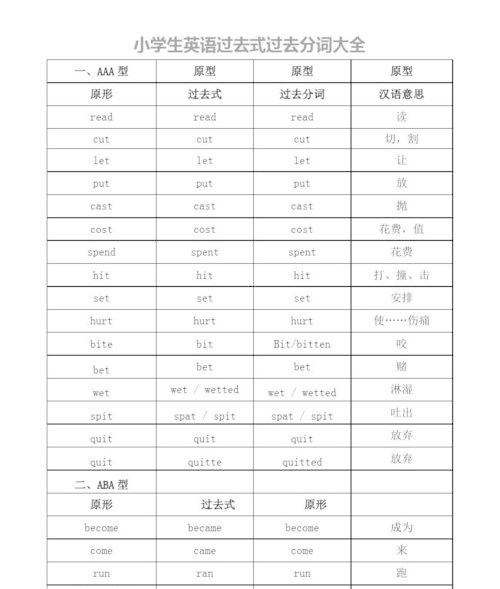过去分词在英语语法中表示已完成的动作,也常用于形成固定短语,如"broken-hearted"(非常伤心),"well-known"(广为人知),"loved ones"(亲人或爱人),"spoken for"(已被预定),"dressed up"(穿着漂亮),"mixed up"(混淆),"torn apart"(被撕成碎片)和"made up"(编造)等。理解这些短语的含义和用法在日常生活中非常重要。

现在分词和过去分词的区别
在深入了解这些短语之前,我们需要了解一下现在分词和过去分词的区别。现在分词通常用于表示正在进行的动作,而过去分词则用于表示已经完成的动作。例如, "running" 是现在分词,而 "run" 是过去分词。
常见的过去分词短语
-
broken-hearted:意思是非常伤心或失望。例如, "She was broken-hearted when she didn't get the job."
-
well-known:意思是广为人知的。例如, "The Eiffel Tower is a well-known landmark in Paris."
-
loved ones:意思是亲人或爱人。例如, "She spent the holidays with her loved ones."
-
spoken for:意思是已经被预定或被占有。例如, "All of the tickets for the concert are already spoken for."
-
dressed up:意思是穿着漂亮或正式。例如, "I need to get dressed up for the wedding."
-
mixed up:意思是混淆或弄错。例如, "I think you have the files mixed up."
-
torn apart:意思是被撕成碎片或分裂。例如, "The toy was torn apart by the dog."
-
made up:意思是编造或虚构。例如, "He made up an excuse for being late."

